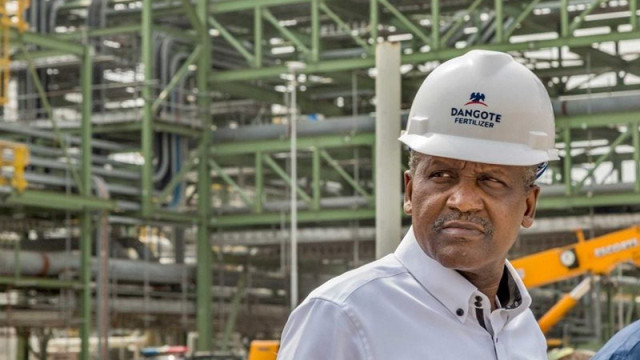The President and Chief Executive of Dangote Group, Alhaji Aliko Dangote, has stated that his $20bn Dangote Petroleum Refinery was built to use Nigerian crude and add value to it within the country.
He admitted that the refinery had also been refining crude oil grades from Europe, the United States, and other countries, but asked why should the plant deviate from this focus.
Africa's wealthiest man further noted that the domestic crude oil supply issues in Nigeria were being resolved by the parties involved.
The statement said the refinery has already affected crude flows, with dozens of Nigerian cargoes remaining in-country and US WTI Midland, a comparable light, sweet grade, being imported, and the mega-refinery could therefore tighten the light, sweet crude market.
The refinery's primary feedstock is WTI and lighter Nigerian crudes, so traders focused on those barrels would likely feel the impact. WTI Midland crude emerged as the preferred supplement to Nigerian supply, with the refinery securing long-term contracts due to its competitive pricing.
The crude flows in and out of the Dangote refinery have been felt in other markets, particularly Europe, the largest consumer of light, sweet Nigerian crude.
“The US grade has accounted for 30 per cent of crude delivered to Dangote, through 18 cargoes,” the multi-billion dollar company stated in the statement.
It said Dangote stated that the facility would broaden the refinery’s feedstock sources with Libyan, Angolan, and Brazilian crude.
“The refinery was built to use Nigerian crude and add value to it within Nigeria. Why should we deviate from that focus?” Dangote stated, adding that the crude supply issues were
“getting resolved”, but that the refinery remained open to all opportunities “to supplement it”.
“Dangote refinery is designed to process a range of light and medium grades of crude oil, including Nigerian grades,” said Rasool Barouni, Associate Director and head of Refining at S&P Global Commodity Insights. “Other similar grades including other WAF grades could be an option.”
Nigeria is sub-Saharan Africa’s largest oil producer, pumping 1.5 million barrels per day in June, according to the Platts OPEC Survey from S&P Global Commodity Insights.
Until this year, all of its oil was exported due to the lack of refining capacity, with gasoline, diesel, and jet fuel imported for domestic use.
The statement also noted that the Organisation of Petroleum Exporting Countries said supplies from Dangote Refinery and Petrochemicals would put pressure on the performance of Europe’s oil industry, especially the Northwest Europe gasoil.
OPEC's June 2024 Oil Market Report listed Dangote refinery as a top diesel and jet fuel supplier that would disrupt Europe's oil and gas industry, positively impacting the Nigerian economy.
Standard & Poor Global had earlier predicted that Nigeria's $20bn Dangote refinery would shake up international crude flows when it reaches full capacity, having already made an impact since coming online in January.
The Dangote refinery clarified that it has never accused NNPC of not supplying crude, but its concern has been NUPRC's reluctance to enforce the domestic crude supply obligation, resulting in the refinery often purchasing the same Nigerian crude from international traders at an additional $3-$4 premium per barrel.
It still insisted that “we are unable to secure our full crude requirement from domestic production and urge NUPRC (Nigerian Upstream Petroleum Regulatory Commission) to fully enforce the domestic crude supply obligation as mandated by the PIA.”




















